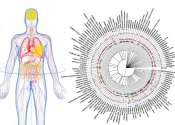Karolinska Institutet (KI) was established in 1810-1811 for the purpose of training military surgeons in Sweden. KI is the largest medical research center in Stockholm, Sweden and a leading medical university with world-wide respect for their research and technology studies. A KI committee appoints the Nobel Laureates for Physiology or Medicine. KI has numerous Nobel Laureates to their credit over the years. The Department of Cell and Molecular Biology, Pharmacology and RNA research are cutting edge in the field of medical research. The medical school is rated highly for patient care and medical research and education.
- Address
- SE-171 77 Stockholm, Sweden
- Website
- http://ki.se/?l=en
- Wikipedia
- http://en.wikipedia.org/wiki/Karolinska_Institute
Some content from Wikipedia,
licensed under CC BY-SA
Subscribe to rss feed









